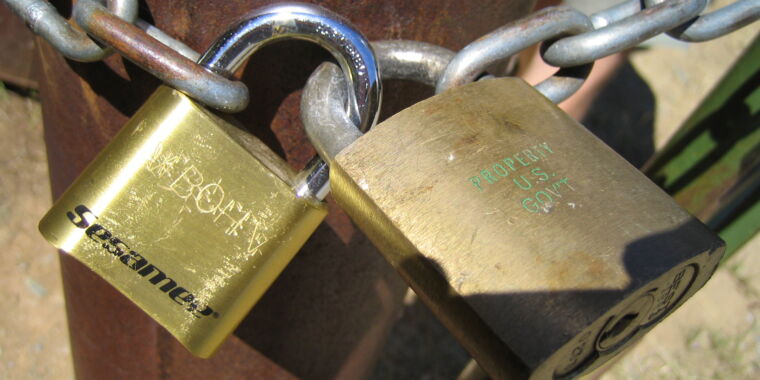I'm refurbishing a system I've been using as a NAS (FreeNAS-based, installed when it was still called that) for the last decade or so. Hardware-wise, it's based on a Supermicro X9SCM motherboard. I picked up a Xeon E3-1240 to replace the pentium I had been using, and an inexpensive SATA SSD for the OS (I had been using a USB drive.)
Since I've had good experience using Debian-based distros as my personal computer for well over a decade, I wanted to base the new system on Ubuntu Server (or Debian Standard) along the lines described by Jim Salter.

 arstechnica.com
arstechnica.com
The OS (Ubuntu or Debian, I've installed both several times now) installs and runs fine. The ZFS pool and dataset(s) also set up with no issues. When I try to transfer my music collection (about 600 folders containing collectively about 10x that number of files) to a ZFS dataset via SMB, the system freezes after a small fraction of the data gets transferred. Every. Time. (Lots of times tried!)
This of course screams out "hardware". I have physically swapped out, one at a time, these:
No culprit identified.
I didn't have any memory to swap (heh) but the 2x8GB of Kingston ecc DIMMs in the system passed memtest x86 and an hour of stressapptest on Linux.
Out of exasperation, I tried Xigmanas 13.2.0.5. Lo and behold it sets up, runs, and transfers my music collection over SMB with no issues at all, on the same hardware, regardless of how much data I transfer at one go. A test setup has been running for several days now, stable as can be.
I'm gobsmacked. Does anyone have an idea of why I might be seeing such a big differences between Xigmanas and the Linux distros I was trying?
While Xigmanas is running great, I really would like to implement encryption on the dataset level as described in Jim's guide. My reading of the Xigmanas docs indicate this isn't really supported, so I'm not completely convinced that would be the best path, especially if I can understand what's happening (so far) with Ubuntu and Debian.
I'm also open to other recos (my NAS demands are pretty basic, so there may be many good options.)
Since I've had good experience using Debian-based distros as my personal computer for well over a decade, I wanted to base the new system on Ubuntu Server (or Debian Standard) along the lines described by Jim Salter.

A quick-start guide to OpenZFS native encryption
Learn the hows, whys, and whats of OpenZFS encryption with this short guide.
The OS (Ubuntu or Debian, I've installed both several times now) installs and runs fine. The ZFS pool and dataset(s) also set up with no issues. When I try to transfer my music collection (about 600 folders containing collectively about 10x that number of files) to a ZFS dataset via SMB, the system freezes after a small fraction of the data gets transferred. Every. Time. (Lots of times tried!)
This of course screams out "hardware". I have physically swapped out, one at a time, these:
- Power supply
- CPU (Pentium G2020)
- Motherboard (Supermicro X9SCM-F)
- Boot storage device (SATA, live USB).
No culprit identified.
I didn't have any memory to swap (heh) but the 2x8GB of Kingston ecc DIMMs in the system passed memtest x86 and an hour of stressapptest on Linux.
Out of exasperation, I tried Xigmanas 13.2.0.5. Lo and behold it sets up, runs, and transfers my music collection over SMB with no issues at all, on the same hardware, regardless of how much data I transfer at one go. A test setup has been running for several days now, stable as can be.
I'm gobsmacked. Does anyone have an idea of why I might be seeing such a big differences between Xigmanas and the Linux distros I was trying?
While Xigmanas is running great, I really would like to implement encryption on the dataset level as described in Jim's guide. My reading of the Xigmanas docs indicate this isn't really supported, so I'm not completely convinced that would be the best path, especially if I can understand what's happening (so far) with Ubuntu and Debian.
I'm also open to other recos (my NAS demands are pretty basic, so there may be many good options.)

